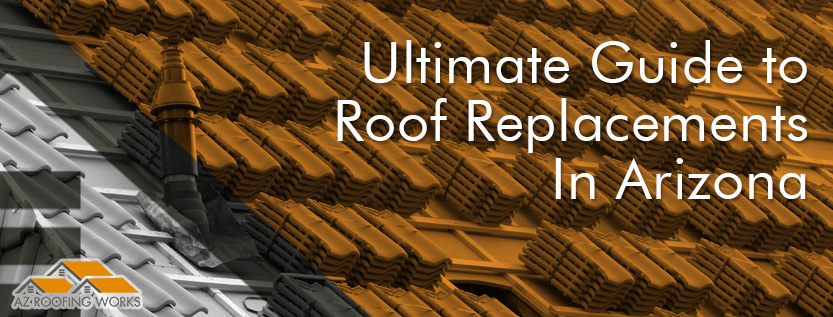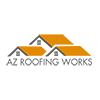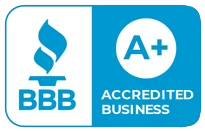Ultimate Guide to Roof Replacements in Arizona
Just like any other household appliance or system, eventually, your roof in Arizona will require roof replacement.
Replacing the roof on your home or commercial property is a major investment that requires proactive planning, hiring the right roofing company in Phoenix, and a little bit of research.
If you’re in the market for having your roof in Phoenix replaced there are a few items that should be considered, that will make the process smoother and less stressful.
To ensure your roof replacement process is smooth and without unanswered questions, we’ve compiled the ultimate guide to roof replacements in Arizona as noted below. So – let’s get started.
Signs You Need A New Roof?
Sometimes the signs that you need a new roof in Arizona are rather obvious – others, not so much.
In fact, while frequent leaks, cracks in tiles or missing shingles tend to alert most home owners that roof repair (as a minimum) are on the horizon, there are several not-so-obvious indicators to consider.
Noted below are 5 common warning signs that you need a new roof replacement completed.
- Tiles or Shingles are visibly worn out: Roofing materials are designed to hold up against frequent use during extreme weather conditions – even those 100-degree days and blowing haboobs. However, roofing materials have a lifespan. If you notice that you have tiles that are cracked, significantly chipped, have shrunk, or shingles that look cracked, are cupped, curled, or are missing – then a roof inspection at the least should be scheduled as soon as possible. Most of the time, the items above are signs that the roof will require replacement.
- The Roof is Leaking: Roof’s in Arizona are designed to protect the inner home against constant heat but also rain during those extreme monsoon-season thunderstorms. The roof is comprised of outer tiles or shingles, and an underlayment. When a roof is leaking and water is appearing inside your home, it’s an indication that both shields of protection have been damaged. In some instances, if the roof is leaking, it will require replacement – however, it is possible that repairs can be completed if the damage is minimal.
- The roof has experienced damage: We experience a lot of extreme weather in the Valley. Wind gusts, thunderstorms, and haboobs often cause trees to uproot or limbs to break off. Lightning strikes can also cause roof damage. If your roof has been struck by lightning, hit by broken trees or other solid objects, it’s best to have a professional roof inspector in Arizona visit your property to determine if repairs or replacement is needed.
- You Notice Neighbors Replacing Roofs: Most home communities are built within a two to three-year period. In these developments, it’s also common for the same home builder to construct these homes, using similar materials – especially roofing. If you notice that your neighbors with similar types or styles of roofs as yours are replacing theirs, it’s a good indication that replacement is likely.
- The Roof Fails an Inspection: A roof inspection is commonly completed when a financial or insurance-related transaction occurs. It provides homeowners, lenders, and potential buyers with an independent report on the actual condition of the roof, it’s life expectancy, and if the roof needs repair or replacement. If your roof fails an inspection, there is a good chance replacement will be required.
How Much Does a New Roof Cost?
There are multiple variables that will determine the cost of replacing a roof in Arizona.
Generally speaking, a home owner should separate their estimates into different categories, that will help them make an informed decision (which we’ll outline below).
Recent reporting from Consumer Reports indicates that the National average for replacing a roof will cost $7,532 – with homeowners with insurance spending between $5,133 and $10,029. This average roofing estimation factors in multiple considerations including:
- The size of the roof: Obviously, the larger the roof, the more materials and time it will take to remove older roofing materials and install a newer roof.
- The pitch of the roof: A roof’s pitch or angle is also a large factor in the estimation process. Roofing with steeper angles will generally cost more than flatter roofs.
- The products or supplies used for construction: Some roofing materials are simple more expensive than others. Materials that are stylish or designed for longevity typically are more expensive than those that are more generic in nature. As such, it’s important for any home owner to discuss the type of materials needed or desired with a roofing professional to gather an accurate estimate.
- The Amounts of Layers: Just as the type of material used is vital – so is the amounts of layers used or installed. This typically relates to the underlayment of the roof but can also include different layers of roofing materials.
- Coding requirements: Depending on your location, some home or light commercial buildings require different codes or permits to be filed. This is an individual cost that will be unique for each roof replacement. Make sure to ask the roofing company in Phoenix about what code requirements or permits are needed – and who is responsible for obtaining those permits.
- Ancillary Materials: There are several ancillary materials on roofs in Arizona such as chimneys, skylights, solar panels, plumbing pipes, HVAC systems and more. Sometimes supports for these items will require replacement along with the roof.
How are Most Roof Replacement Projects Estimates Quoted?
Generally speaking, the roof replacement estimate will factor in the above variables but will be quoted on a “per square” basis.
While most consumers are familiar with the square foot, a roofing square is typically 100 square feet. Again, it’s vital for any homeowner to clarify this with any home roof replacement company in Phoenix – so there are no hidden or unexpected costs.
There are several relevant factors that are included in the per square rate such as:
- The price of tiles, shingles, or materials or flat roofing projects.
- The supplies needed for removal and replacement of the roof.
- Protective elements that are installed to reduce extreme heat.
- The labor of services including removal, installation and waste disposal.
Typical Roofing Prices
Depending on the type of roofing materials you choose, the average cost of materials alone can range from $100 to $1,000 per roofing square.
The average size of roofs according to the US Census data of a 2,200 square foot home equates to 17 roofing squares. By using that criteria, we can estimate the average pricing for materials as listed below:
- $2,500 for 3-tab asphalt shingles
- $3,000 for galvanized steel
- $14,000 for tiles
- $20,000 for high-end options like slate
- $25,000+ for copper
Under most circumstances, the roof replacement quote will break down as 40% for the product and 60% for labor.
When replacing a roof, there are a few independent areas that can be confusing for some home owners to understand.
Cost to Tear Off & Replace Roof
The first step in replacing an existing roof is removal of the existing materials and structure. This can cost anywhere from $100 to $500 per roofing square.
Some roofing contractors choose to bill by the hour, while others base it on the size. Other factors that may impact the cost of removal include the condition of the supports or timbers.
If the support structure of the roof is rotting, it will require replacement as well – which can increase the overall costs from $1,000 to $10,000 in some cases.
Roofing Labor Cost
As indicated above, the complete price of replacing a roof is typically broken down in two areas, cost of the materials and labor costs. The average price of roofing project labor can range from $150 to $300 per roofing square (again – 1 roofing square is equal to 100 square feet).
However, there are several variables such as the angle or elevation of the roof, the type of roof, and location that may influence the labor cost per roofing square.
It’s important to clearly discuss these factors with any roofing replacement company in Arizona to ensure you receive an honest and transparent estimate.
Does Insurance Cover Roof Replacement in Arizona?
This is a hard question to answer simply due to the reality that all policies are unique.
Generally speaking though, insurance companies will cover damage and repairs to roofs – but will not cover it’s replacement unless it was damaged by an obstruction.
For example, if your roof needs to be replaced because a large tree damaged the roof – that may be covered by the insurance company.
Due to the multiple variables in this instance, it’s best to contact your insurance company direction to determine what is or is not covered with regard to roof repairs and replacement.
Choosing the Roof Type
Now that we’ve clarified the different areas and general costs of replacing a roof in Phoenix, the next step is to outline the different roofing options.
Most residential communities have specific requirements or covenants (HOA) that will require a certain type of roof including tiles, shingles, or flat.
This is going to be your first variable to consider – anytime you’re thinking about replacing a roof.
So – before you review the information below, or complete due diligence about different roofing materials, make sure you contact your HOA to ask about the type of roofing materials you can use for the roof replacement project.
In the bullet points listed below, we’ll describe the different types of roofs, the estimated value (noted in $’s) and some of the features of each:
- Asphalt Shingles ($-$$): The asphalt shingle is a popular roofing material in the Valley of the Sun. It’s fiberglass reinforced asphalt that
are offered in multiple styles, colors, and designs that can fit your home’s appearance and budget. They are among the most affordable but tend to wear out sooner than others – which is reflected in the lower price-point. - Clay, Cement
and Fiber Cement Tile ($$-$$$): The tile roof is another popular option in the Southwestern United States. Most tiles are made from clay or cement, with others made from fiber cement for reduced weight and durability. The tile roof tends to last the longest among the group, which is why they are more expensive. - Wood Shakes and Shingles ($$-$$$): The shake and shingle roof is typically found on homes older than 30 years. They were quite popular in the
1970’s and80’s and is a classic roofing material continues to be populardue their longevity. However, the drawback is that they can wear thinner due to excessive exposure to the sun. - Flat or Foam/ Single-ply/ Built-up roofing ($-$$): This is also referred
to a flat or foam roofing. Within this category are several specific material and construction choices. It’s best to contact a roofing professional to ask which materials are best suited for your individual application. - Plastic or composite shingles ($$-$$$): For those who have wood shakes and shingles roofs but are looking for a longer-lasting alternative, the plastic or composite shingle is becoming a popular option. These products mimic wood shakes and slate but cost more and last longer. They’re less of a fire hazard too.
Understanding the Roof Replacement Process
When you’ve determined that a roof replacement is needed, found the right type of roof and are ready to begin the roof replacement process, there are several steps to follow that will ensure timely and effective replacement.
Here are the general steps for finding the right roof replacement contractor in Phoenix, hiring them, and steps from start to finish.
Hire the Right Roofing Company in Phoenix
The first step is to hire the right roof replacement company for your home roof project. There are three specific items that you should verify. First, make sure they are licensed roofing contractors.
Second, check with the State of Arizona contractors board to verify that they are insured and bonded to complete roof replacement in your county.
Third, verify the company is in good standing with
Receive the Complete Roofing Estimate
Once you’ve retained the roofing company, they will visit your property to inspect the roof, location, and other elements we listed above to determine what type and how much material they’ll need to complete the replacement.
They will then provide you with a written estimate that will likely be broken down in an easy-to-understand manner, that includes: initial charges, documented milestones, required materials, permits, and an estimated start and completion date.
The estimate may or may not include ancillary charges, such as dumpster rental for roofing debris and cost of clean-up. Be sure to ask about any outside charges when reviewing the roofing estimate.
Obtain the Roof Replacement Permit(s)
As we indicated above, all roof replacement projects will require a permit by local government offices.
This is something that should be completed by the roofing company, but it is VITAL to clarify this with any roofing company before you hire them.
This is one item that you don’t want to skip, as the roof will be inspected in which the permits will be verified.
Preparing for Roof Replacement
When it comes time for the roof replacement project to begin, you’ll want to complete a few important details prior to the starting date.
Most of these items are safety items – such as securing pets and other items that will be provided to you a few weeks before the start.
The most important item to remember is to keep all pets and children indoors whenever construction is underway.
Some customers will stay in a hotel or take the opportunity to visit family during the construction phase – so that might be a good idea.
Expected Time to Complete a Roofing Project
Most roof replacement projects will take between 3 to 5 days to complete from start to finish.
Of course, if additional structural repairs are discovered, it will take additional time and funding to complete.
Other variables include weather – which can include excessive heat index. Make sure to clarify with your roof repair company in Phoenix about all variables.
Clean-up and Removal of Debris
After the roof construction has been completed, the contractor will ensure that all older materials are fully removed.
This will include the initial roofing material, underlayment or tar paper, nails, wood, and other debris caused during construction.
Final Roof Inspection
The last step is inspection – which will be set up by the roofing contractor. You’ll want to be present during the inspection to verify everything has been completed as scheduled.
Building a new roof in Phoenix is a rather complex and detailed process that will require planning and follow-up.
When you work with an experienced and ethical roofing company in Arizona, you’ll reduce mistakes, receive superior customer service, and ensure the roof replacement is completed professionally and on schedule.
If you are in need of roof inspection, roof maintenance or roof repair service in Mesa, Chandler, Scottsdale, or any other Metro Phoenix location, AZ Roofing Works is ready to help you! Contact us today, either online or call our office directly at (602) 283-3383.
Related Blogs:
- How Long Does a Roof Last? 5 Things that Extend a Roof’s Lifespan
- Most Common Emergency Roof Repairs in Phoenix and How to Avoid Them
- How Long Does a Tile Roof Last in Arizona






